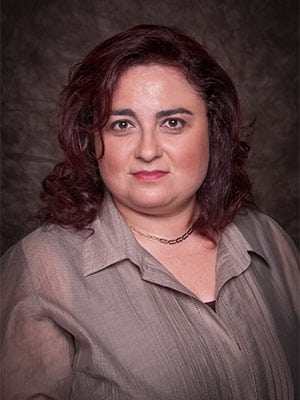Κλινική Ψυχολογία
(MSc, 3 έτη ή 6 Εξάμηνα)
Διάρκεια Σπουδών
3 έτη
Τίτλος Σπουδών
Μεταπτυχιακό Δίπλωμα στην Κλινική Ψυχολογία
Επίπεδο Τίτλου Σπουδών
Μεταπτυχιακό (2ος Κύκλος Σπουδών)
Γλώσσα Διδασκαλίας
Αγγλική
Μέθοδος Φοίτησης
Πλήρης Φοίτηση
Ελάχιστες Ευρωπαϊκές Πιστωτικές Μονάδες (ECTS)
180
Πληροφορίες
Κλινική Ψυχολογία (MSc, 3 έτη ή 6 Εξάμηνα)
| Διάρκεια Σπουδών | 3 έτη |
| Τίτλος Σπουδών | Μεταπτυχιακό Δίπλωμα στην Κλινική Ψυχολογία |
| Επίπεδο Τίτλου Σπουδών | Μεταπτυχιακό (2ος Κύκλος Σπουδών) |
| Γλώσσα Διδασκαλίας | Αγγλική |
| Μέθοδος Φοίτησης | Πλήρης φοίτηση |
| Ελάχιστες Ευρωπαϊκές Πιστωτικές Μονάδες (ECTS) | 180 |
Πληροφορίες
Profile of the Programme
You can download the student handbook here
Aims
The three-year Master of Science degree programme in Clinical Psychology aims to integrate clinical, academic and research aspects of training. Upon completion of their training, students will be able to engage in applied practice of clinical psychology with different populations. The programme also offers students the opportunity to design and conduct empirical research. A major aim of the programme is to cultivate in training clinicians an ethical professional identity that will guide their work as researchers and as practitioners.
Objectives
The programme is based on the scientist-practitioner model of training. This model offers clinical training to students that prepares them for a career as professional clinical psychologists. Moreover, the programme offers students the education to develop, through further training, into competent researchers and academics.
Career Prospects
Upon successful completion of the programme graduates will be able to work as clinical psychologists in different professional settings of the private or public sector. Potential employment opportunities include: Non-profit organizations, mental health centres, clinics, hospitals, private practice, group practice, rehabilitation centres, psychiatric centres, etc.
Access to Further Studies
Upon graduation, students may pursue further postgraduate (PhD, or PsyD) studies in Clinical Psychology and/or related fields.
Academic Performance
The minimum general requirement for admission to the post-graduate degree programme is a bachelor’s degree (or expected, to be completed before the commencement of studies) from a recognized university with a GPA of at least 3.0 or a Second-Class Upper Division Honors (British Degrees) or 7.5 (Greek Degrees).
English Language Proficiency
Students satisfy the English requirements if their first degree was taught in English. Otherwise, they would need to present a minimum TOEFL score 550 and above, or Computer-based TOEFL score of 213 and above, or Internet-based TOEFL (iBT) score 79-80 and above, or GCSE (or GCE) English Language “O” Level of “C” or above or IELTS of 6.5 and above or Cambridge Exams (First Certificate with Grade B and above, as well as Proficiency with Grade C and above or a score placement at the ENGL-100 level of the University English Placement Test. The University offers English courses at various levels to help students reach the required standard for admission to a graduate programme.
Reference Letters
Applicants are required to submit three (3) references that can attest to their academic and/or clinical skills, in support of their application. The reference form is available here.
Personal Statement
Applicants are required to submit a personal statement demonstrating the reasons motivating them to pursue this degree and why they believe they are suitable for admission to the programme. The personal statement should not be a summary of the CV and academic experiences but should convey a sense of who the candidate is as a person and how his/her life experiences led to this decision.
Interview
Having reviewed each application and applicants’ suitability against the entry criteria, the Programme Admissions Committee will select applicants who may proceed to the interview phase. Interviews take place with programme faculty and with advanced students.
Additional criteria
Prospective candidates are also evaluated on the basis of previous clinical and research experience, and any other postgraduate qualifications in the area of Psychology.
Greek Language Requirement
Once admitted, students whose native language is not Greek will be required to demonstrate proficiency in the Greek language at the B1 level (as per the Common European Framework of Reference for Languages) before advancing to the Clinical Practicum Seminar (in the Spring semester of their second year).
Dates for the Fall 2024 Admission Cycle
Application Deadline: April 1st
Interviews: May 20th – June 5th
Decisions: Week of June 10
Course assessment usually comprises of a comprehensive final exam and continuous assessment. Continuous assessment can include amongst others, mid-terms, projects, and class participation.
Letter grades are calculated based on the weight of the final exam and the continuous assessment and the actual numerical marks obtained in these two assessment components. Based on the course grades the student’s semester grade point average (GPA) and cumulative point average (CPA) are calculated.
Practicum Readiness evaluation.
Prior to beginning their second semester of the second year, students undergo a Practicum Readiness Evaluation to assess whether they are ready to advance to the Clinical Practicum phase.
The student must complete 180 ECTS and all programme requirements.
A minimum cumulative grade point average (CPA) of 2.0 is required for graduation. Students must have a grade of C or above in all courses before proceeding with their Practicum. If in one or more courses, the grade obtained is below C, the particular course or courses will have to be repeated before proceeding with the Practicum.
Professional Readiness evaluation
In order to complete the Clinical Practicum component of the Programme trainees must successfully complete the Examination of Professional Readiness (EPR). The EPR will be held individually for each trainee following completion of the Clinical Practicum requirements. The EPR aims to comprehensively assess each trainee’s competence and readiness for entry into practice as an independent professional clinical psychologist.
Key Learning Outcoumes
Upon successful completion of this programme, students should be in a position to:
- Critically analyze and synthesize clinical perspectives from the main schools of thought in Clinical Psychology.
- Utilize knowledge and skills in clinical interviewing, assessment and psychotherapy, as derived from a variety of psychotherapeutic approaches, which can be effectively applied in varying treatment contexts.
- Practice the profession of Clinical Psychology guided by high ethical and professional standards, as outlined in the Code of Ethics of the Cyprus Board for the Registration of Psychologists, as well as the international Codes of Conduct pertaining to the profession.
- Value, appreciate and respect the diversity represented by individuals of differing cultures, gender, sexual orientation, ethnicity, race, religion, age, physical/mental status, and disability.
- Adopt a scientific approach to addressing questions relevant to Clinical Psychology by examining available evidence, and demonstrate proficiency in research methods.
- Develop proficiency in presenting clinical data in written and oral form.
- Demonstrate competence in working as clinical psychologists with a range of clinical populations through supervised clinical training experiences in private and/or public settings.
- Utilize psychometric assessment methods for the purpose of clinical diagnosis.
- Engage in self-reflection, identify weaknesses in their work as practitioners, and utilize clinical supervision to overcome them.
- Approach the profession of clinical psychology as a lifelong learning process and pursue opportunities for continuing education and personal and professional development.
In addition to providing high-quality clinical training, the MSc Programme in Clinical Psychology has also been designed to:
- Comply with the current legislation for professional psychologists in Cyprus.
- Meet the requirements for acquiring the EuroPsy as set by the European Federation of Psychologists Associations (EFPA) (for students who opt to complete 1500 hours of supervised clinical practicum).
| Course Code | Course Title | ECTS Credits |
|---|---|---|
| PSYC-505 | Adult Psychopathology | 7.5 |
| PSYC-510 | Child Psychopathology | 7.5 |
| PSYC-511 | Advanced Statistics and Research Methods I | 7.5 |
| PSYC-512 | Advanced Statistics and Research Methods II | 7.5 |
| PSYC-520 | Advanced Theories and Models of Psychotherapy I | 7.5 |
| PSYC-521 | Advanced Theories and Models of Psychotherapy II | 7.5 |
| PSYC-530 | Psychopharmacology | 7.5 |
| PSYC-535 | Multicultural Issues and Diversity | 7.5 |
| PSYC-605 | Assessment and Clinical Skills I: Adults | 7.5 |
| PSYC-610 | Assessment and Clinical Skills II: Children | 7.5 |
| PSYC-611 | Clinical Psychometric Assessment I | 7.5 |
| PSYC-612 | Clinical Psychometric Assessment II | 7.5 |
| PSYC-620 | Psychological Interventions I: Dynamic Approaches | 7.5 |
| PSYC-621 | Psychological Interventions II: CBT Approaches | 7.5 |
| PSYC-640 | Professional Issues and Ethics in Counseling and Clinical Psychology | 7.5 |
| PSYC-675 | Group Therapy | 7.5 |
| PSYC-676 | Child Therapy | 7.5 |
| Course Code | Course Title | ECTS Credits |
|---|---|---|
| PSYC-696 | Thesis I | 7.5 |
| PSYC-697 | Thesis II | 7.5 |
| PSYC-711 | Practicum Seminar I | 7.5 |
| PSYC-712 | Practicum Seminar II | 7.5 |
| PSYC-713 | Practicum Seminar III | 7.5 |
| PSYC-714 | Clinical Practicum I | 7.5 |
| PSYC-715 | Clinical Practicum II | 7.5 |
| PSYC-716 | Clinical Practicum III | 15 |
Semester 1
| Course ID | Course Title | ECTS Credits |
|---|---|---|
| PSYC-505 | Adult Psychopathology | 7.5 |
| PSYC-511 | Advanced Statistics and Research Methods I | 7.5 |
| PSYC-520 | Advanced Theories and Models of Psychotherapy I | 7.5 |
| PSYC-530 | Psychopharmacology | 7.5 |
Semester 2
| Course ID | Course Title | ECTS Credits |
|---|---|---|
| PSYC-510 | Child Psychopathology | 7.5 |
| PSYC-512 | Advanced Statistics and Research Methods II | 7.5 |
| PSYC-521 | Advanced Theories and Models of Psychotherapy II | 7.5 |
| PSYC-640 | Professional Issues and Ethics in Counseling and Clinical Psychology | 7.5 |
Semester 3
| Course ID | Course Title | ECTS Credits |
|---|---|---|
| PSYC-605 | Assessment and Clinical Skills I: Adults | 7.5 |
| PSYC-610 | Assessment and Clinical Skills II: Children | 7.5 |
| PSYC-611 | Clinical Psychometric Assessment I | 7.5 |
| PSYC-620 | Psychological Interventions I: Dynamic Approaches | 7.5 |
Semester 4
| Course ID | Course Title | ECTS Credits |
|---|---|---|
| PSYC-612 | Clinical Psychometric Assessment II | 7.5 |
| PSYC-621 | Psychological Interventions II: CBT Approaches | 7.5 |
| PSYC-676 | Child Therapy | 7.5 |
| PSYC-711 | Practicum Seminar I | 7.5 |
Semester 5
| Course ID | Course Title | ECTS Credits |
|---|---|---|
| PSYC-675 | Group Therapy | 7.5 |
| PSYC-696 | Thesis I | 7.5 |
| PSYC-712 | Practicum Seminar II | 7.5 |
| PSYC-714 | Clinical Practicum I | 7.5 |
Semester 6
| Course ID | Course Title | ECTS Credits |
|---|---|---|
| PSYC-535 | Multicultural Issues and Diversity | 7.5 |
| PSYC-697 | Thesis II | 7.5 |
| PSYC-713 | Practicum Seminar III | 7.5 |
| PSYC-715 | Clinical Practicum II | 7.5 |
Semester 7 (Optional)
| Course ID | Course Title | ECTS Credits |
|---|---|---|
| PSYC-716 | Clinical Practicum III | 15 |
The above semester breakdown is an indicative one. A few of the courses are electives and can be substituted by others. Students may contact their academic advisor and consult their academic pathway found on this website under “Schools & Programmes”.










